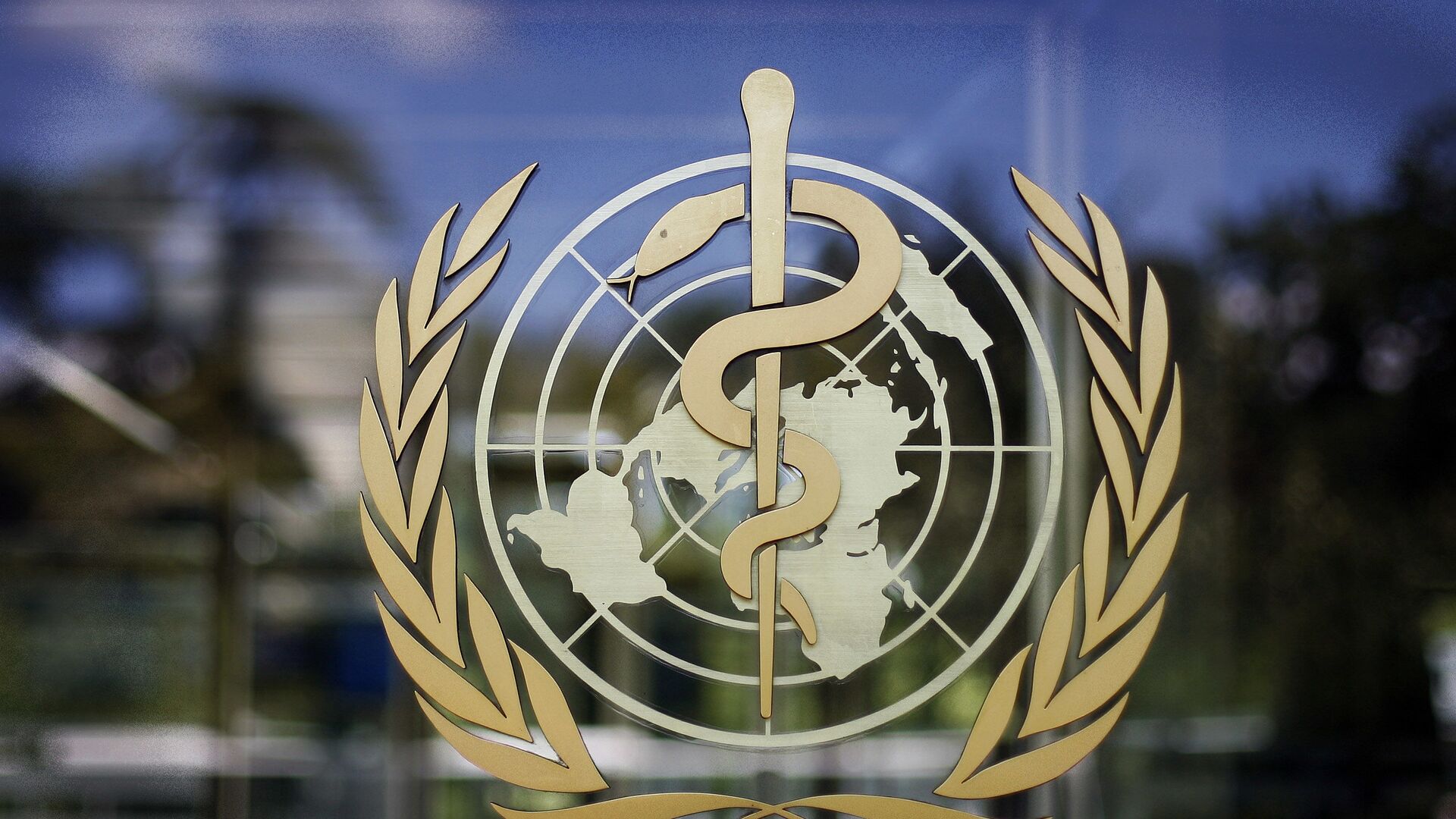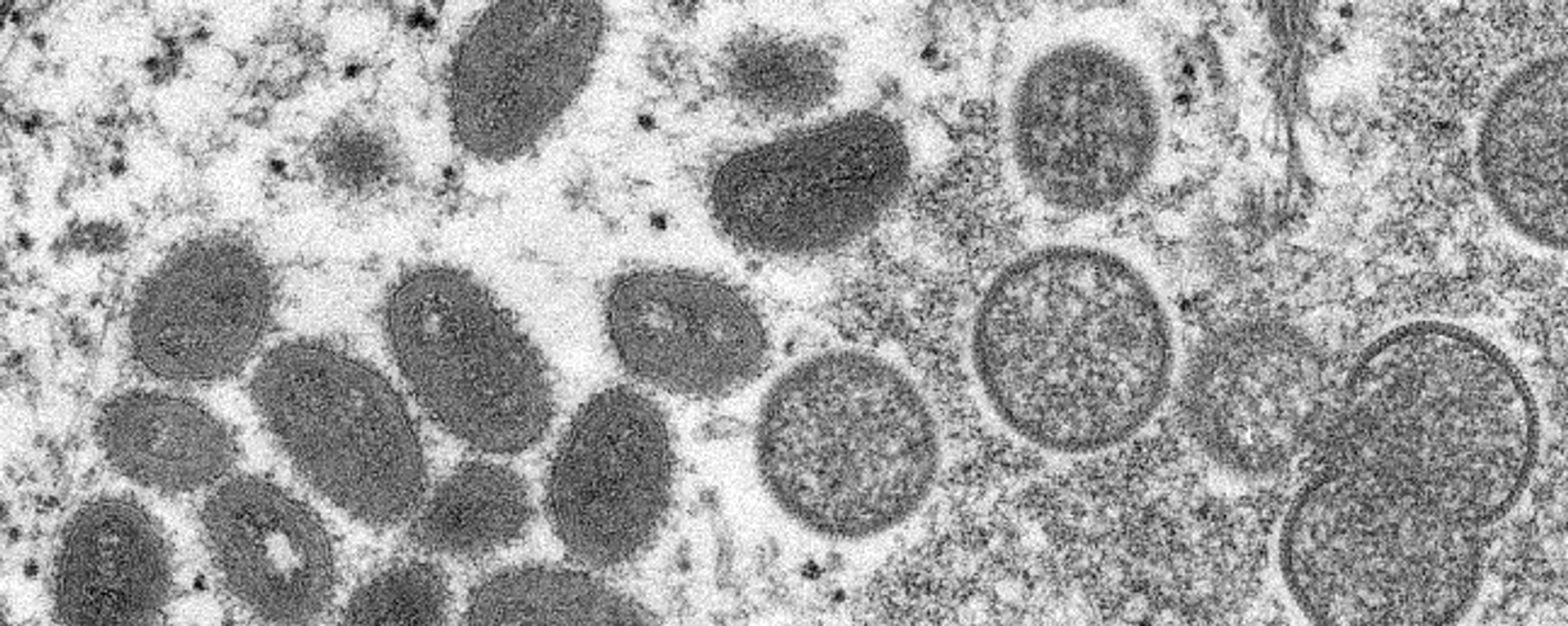https://sputnikglobe.com/20220614/who-to-change-discriminatory-and-stigmatizing-name-of-monkeypox-disease-tedros-says-1096317927.html
WHO to Change ‘Discriminatory and Stigmatizing’ Name of Monkeypox Disease, Tedros Says
WHO to Change ‘Discriminatory and Stigmatizing’ Name of Monkeypox Disease, Tedros Says
Sputnik International
After weeks of media coverage of the First World-centered outbreak that has focused on the virus’ African origins, the World Health Organization (WHO) has... 14.06.2022, Sputnik International
2022-06-14T20:36+0000
2022-06-14T20:36+0000
2023-02-14T12:21+0000
monkeypox
renaming
world health organization (who)
virus
https://cdn1.img.sputnikglobe.com/img/107896/20/1078962075_0:0:2703:1521_1920x0_80_0_0_4dea446c35b39be979ec9be5931397b1.jpg
Speaking to reporters on Tuesday, WHO chief Tedros Adhanom Ghebreyesus said the UN-affiliated agency was “working with partners and experts from around the world on changing the name of monkeypox virus... and the disease it causes."The move comes just days after more than 30 mostly-African scientists penned a position paper published on the medical discussion forum Virological in which they argued for the “urgent need for a non-discriminatory and non-stigmatizing nomenclature for monkeypox virus.”“In the context of the current global outbreak, continued reference to, and nomenclature of this virus being African is not only inaccurate but is also discriminatory and stigmatizing. The most obvious manifestation of this is the use of photos of African patients to depict the pox lesions in mainstream media in the global north. Recently, Foreign Press Association, Africa issued a statement urging the global media to stop using images of African people to highlight the outbreak in Europe,” they added.In the report, they note that an equal number of strains of monkeypox virus have been identified inside and outside of Europe, with the first being isolated in Liberia in 1970 and the three most recent strains being spotted in the United States in 2021 and 2022.Tedros also told reporters that he had “decided to convene the Emergency Committee under the international health regulations next week, to assess whether this outbreak represents a public health emergency of international concern,” which is the highest alarm the agency can sound, according to AFP.After the outbreak of COVID-19 in China in late 2019 and early 2020, the WHO introduced a new official disease nomenclature to combat the growing stigma against Chinese and other East Asians due to the media commonly referring to the virus as the “Wuhan Virus” or the “Chinese virus.” Then-US President Donald Trump latched onto the Chinese label in an effort to dissociate his administration from responsibility for the outbreak and mass death in the United States that followed - a development that was in part blamed for a sharp spike in violent attacks on Chinese and Chinese-Americans in the US.Other viruses given common names after locations include the Spanish Influenza pandemic, a global outbreak of H1N1 Influenza A virus that killed tens of millions in the early 20th century. However, the virus did not originate in Spain, it was simply that the press there was not muzzled during World War I, as it was in other nations already experiencing the outbreak, because Spain was a neutral country. Thus, the world first learned of the outbreak via the Spanish press.
https://sputnikglobe.com/20220613/venezuela-reports-its-first-monkeypox-case-1096256178.html
Sputnik International
feedback@sputniknews.com
+74956456601
MIA „Rosiya Segodnya“
2022
Sputnik International
feedback@sputniknews.com
+74956456601
MIA „Rosiya Segodnya“
News
en_EN
Sputnik International
feedback@sputniknews.com
+74956456601
MIA „Rosiya Segodnya“
Sputnik International
feedback@sputniknews.com
+74956456601
MIA „Rosiya Segodnya“
monkeypox, renaming, world health organization (who), virus
monkeypox, renaming, world health organization (who), virus
WHO to Change ‘Discriminatory and Stigmatizing’ Name of Monkeypox Disease, Tedros Says
20:36 GMT 14.06.2022 (Updated: 12:21 GMT 14.02.2023) After weeks of media coverage of the First World-centered outbreak that has focused on the virus’ African origins, the World Health Organization (WHO) has decided it’s going to rename monkeypox to diminish the association in the public’s mind.
Speaking to
reporters on Tuesday, WHO chief Tedros Adhanom Ghebreyesus said the UN-affiliated agency was “working with partners and experts from around the world on changing the name of monkeypox virus... and the disease it causes."
"We will make announcements about the new names as soon as possible,” Tedros added.
The move comes just days after more than 30 mostly-African scientists
penned a position paper published on the medical discussion forum Virological in which they argued for the “urgent need for a non-discriminatory and non-stigmatizing nomenclature for monkeypox virus.”
“The prevailing perception in the international media and scientific literature is that MPXV [monkeypox virus] is endemic in people in some African countries. However, it is well established that nearly all MPXV outbreaks in Africa prior to the 2022 outbreak have been the result of spillover from animals to humans, and only rarely have there been reports of sustained human-to-human transmissions,” the scientists wrote.
“In the context of the current global outbreak, continued reference to, and nomenclature of this virus being African is not only inaccurate but is also discriminatory and stigmatizing. The most obvious manifestation of this is the use of photos of African patients to depict the pox lesions in mainstream media in the global north. Recently, Foreign Press Association, Africa issued a statement urging the global media to stop using images of African people to highlight the outbreak in Europe,” they added.
In the report, they note that an equal number of strains of monkeypox virus have been identified inside and outside of Europe, with the first being isolated in Liberia in 1970 and the three most recent strains being spotted in the United States in 2021 and 2022.
Since early May, more than 1,600 cases have been identified and another 1,500 cases are suspected in a total of 43 countries and territories, including most of Central and Western Europe, North America, and South America. Tedros said there had been 72 deaths from monkeypox this year, all of which were in countries where it is endemic.
Tedros also told reporters that he had “decided to convene the Emergency Committee under the international health regulations next week, to assess whether this outbreak represents a public health emergency of international concern,” which is the highest alarm the agency can sound,
according to AFP.
The virus is related to smallpox and has a similar appearance and mostly similar symptoms, but is far less virulent. It has been observed to have a mortality rate of between 3.6% and 10% in the African countries where it is endemic, but a much lower mortality rate in more developed nations. Scientists believe the smallpox vaccine will also protect against monkeypox but have not recommended mass vaccination as of yet.
After the outbreak of COVID-19 in China in late 2019 and early 2020, the WHO introduced a new official disease nomenclature to combat the growing stigma against Chinese and other East Asians due to the
media commonly referring to the virus as the “Wuhan Virus” or the “Chinese virus.” Then-US President Donald Trump latched onto the Chinese label in an effort to dissociate his administration from responsibility for the outbreak and mass death in the United States that followed - a development that was in part blamed for a
sharp spike in violent attacks on Chinese and Chinese-Americans in the US.
Other viruses given common names after locations include the Spanish Influenza pandemic, a global outbreak of H1N1 Influenza A virus that killed tens of millions in the early 20th century. However, the virus
did not originate in Spain, it was simply that the press there was not muzzled during World War I, as it was in other nations already experiencing the outbreak, because Spain was a neutral country. Thus, the world first learned of the outbreak via the Spanish press.




